Our approach
Collaborative innovation
At Ad Scientiam, we believe that innovation cannot come from a single company but from an entire ecosystem.
Our role is to create the movement to involve patients, researchers, doctors and companies in a dynamic of permanent innovation.


Innovate with your ecosystem
> The MSCopilot® program involved
30 clinicians
20 french hospitals
more than 30 patient interviews
Personalized weekly training program
Ad Scientiam was born in the heart of the largest hospital in Europe: Pitié-Salpêtrière. Our projects are born from a study of the scientific literature and discussions with clinicians and researchers specializing in the disease.
Users (patients and physicians) are involved from the early stages of designing a solution. Expressing the value they perceive is essential to designing a truly useful solution.
For example, our MSCopilot® program involved 30 clinicians in 20 French hospitals, the majority of patient associations and more than 30 patients interviewed individually.
Our team at the service of the user experience
Since its creation, Ad Scientiam has acquired expertise in ergonomics, cognitive psychology, artistic direction and rapid prototyping to ensure a quality design process. expertise in ergonomics, cognitive psychology, artistic direction and rapid prototyping to ensure a quality design process.
Continuously enriched by the experience acquired through our various programs, this approach is applied at each stage of our projects, from framing to post-marketing follow-up.
Personalized weekly training program
Expertise in ergonomics & cognitive psychology
Expertise in graphic design
Expertise in prototyping
Quality, conformity and validation
Our activities are based on the collection and use of health data. Aware of the challenges of the security and confidentiality of health data entrusted to us, we adopt a proactive approach to take into consideration the recommendations of the competent authorities in matters of health data, from the start of our projects.


Data stocked by a Health Data Host (HDS)
Conducting pre-market clinical studies
ISO 13485, certification of Quality Management System
Protection and security of personal data
In accordance with the General Data Protection Regulations (GDPR), all personal data collected by Ad Scientiam is treated in a secure way.
These data are stored by a Health Data Host (HDS). A consent form specifying the purpose of the collection is requested from the user before carrying out any processing task on their personal data.
Conception
The design of our software solutions follows applicable regulatory and normative requirements, such as ISO 14971 for risk management, IEC 62304 for software development, or ISO 62366 for usability.
It draws on the expertise of a multidisciplinary team made up of computer engineers, ergonomists, Regulatory Quality Manager, PhD in signal processing and algorithms, clinicians, PhD specialized in Clinical Research, and our entire ecosystem.
Scientific and medical validation
Before the product is marketed, significant resources are invested in R&D to carry out clinical studies to demonstrate the clinical value of our solutions.
Our studies guarantee compliance with international and European regulations by following the ICH (International Conference on Harmonization) and GCP (Good Clinical Practices).
They are carried out in accordance with CNIL reference methodologies and are subject to validation by the ANSM and the ethics committees as soon as necessary.
Distribution
All our Medical Devices are declared to the ANSM before they are made available on the French market.
Finally, the launch of our products outside France are declared to the competent authorities of each country concerned, in accordance with the local legislation in force.
Quality Management System
In order to always improve the quality of our products and better control risks, we have been investing for many years in our Quality management system. These efforts were rewarded in August 2020 when we obtained the ISO 13485 "Medical devices - Quality management system" certification by our notified body BSI.
Scientific board
Scientific validity, usefulness, relevance guide the design process of Ad Scientiam solutions.
This is why the involvement of expert boards, learned societies, patient associations and research teams is essential.
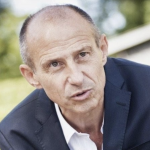

Dr Daniel Gérard
Ad Scientiam scientific board
Daniel Gérard is a medical doctor, graduated from Paris Sorbonne University, specialist in psychiatry, hospital practitioner.
He worked in the pharmaceutical industry until 2016, mainly at Sanofi, was notably medical director of the central nervous system department of the French subsidiary then director of market access for chronic diseases, in charge of developing access to health care for the people living with mental disorders in low income countries.
He supports Ad Scientiam in particular in its programs in mental disorders.
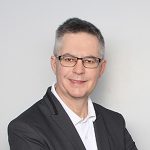

Dr. Yann Le Coz
Yann Le Coz is a doctor, former Intern at Paris Hospitals. After several experiences in the pharmaceutical industry in clinical research and marketing, he was struck by multiple sclerosis. He then became involved in the associative world of MS to help patients. He voluntarily brings his experience as an expert patient to the development of the MSCopilot® project.


Dr. Jean-Pierre Lehner
Jean-Pierre Lehner holds a medical degree from the Faculty of Medicine of Paris. After having been chief resident, assistant of the Hôpitaux de Paris in the Cardiology department (Pr Tricot) of the Bichat Hospital, Jean-Pierre Lehner joined the Roussel laboratories in 1981 as Medical Director (1981-1986), then was appointed Medical Director of the Roussel-Uclaf Group (1986-1992).
He was then successively Director of Clinical Investigations of Sanofi Recherche (1992-1996), Scientific Director of Sanofi Winthrop (1996-2002), Vice-President of Medical Affairs Europe of Sanofi-Aventis (2003-2005) and Senior Vice-President of Business Medical and Regulatory since 2005. He left Sanofi in 2013.
MSCopilot® scientific board
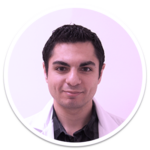

Dr. Mikaël Cohen
MS expert center.
Pasteur Hospital, CHU de Nice.


Dr. Cécile Donzé
Head of the Physical Medicine and Functional Rehabilitation department, multiple sclerosis. Saint Philibert Hospital, Lille
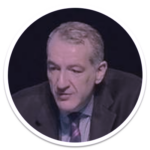

Pr. Pierre Labauge
Head of the Neurology department, head of the multiple sclerosis and white matter medical team.
Montpellier CHU




Pr. David-Axel Laplaud
Head of the Neurology department.
CHU de Nantes.
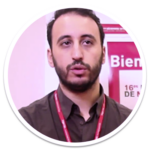

Dr. Adil Maarouf
Neurology department and neurovascular unit.
Hôpital-La Timone, Marseille
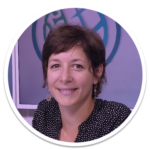

Dr. Elisabeth Maillart
Attending physician, MS expert center.
Hôpital de la Pitié-Salpêtrière, Paris
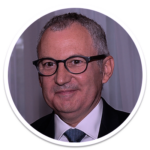

Dr. Claude Mekies
President of the regional neurodegenerative diseases resource center Occitanie. Secretary General of the French-language Neurology Days (JNLF)




Pr. Eric Thouvenot
Head of the Neurology department.
CHU de Nîmes.


Professeur Ayman Tourbah
Neurologist at the University Hospital Paris Île-de-France Ouest.
University Professor, attending physician at Paris Saclay University.
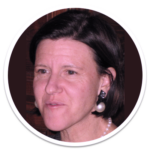

Dr. Catherine Vignal-Clermont
Head of the Neuro-ophthalmology department at the Fondation Rothschild Hospital.
Hôpital Fondation Rothschild.




Pr. Sandra Vukusic
Head of the Multiple sclerosis, myelin pathologies and neuroinflammation department.
Hôpital Pierre Wertheimer CHU de Lyon.
Patient associations
Our approach
Patient associations play a key role in supporting patients. Their role, in line with our values, leads us to collaborate and pool our own expertise to create the solutions of the future, for monitoring and improving care practices.


Our goal in this collaboration:
To understand the problems and needs of patients
To propose and challenge our new support tools to improve their follow-up and their integration into the care pathway.
Testimony
For me, new technologies applied to healthcare will help the patient to better live with their disease. With Ad Scientiam's solution, MSCopilot®, you can monitor the evolution of your Multiple Sclerosis objectively. When I was diagnosed with MS, I would have been reassured to be able to follow regularly the improvement or deterioration of my clinical state, knowing at what stage of the disease I was and being able to consult sooner with my neurologist.
Indeed, reacting as soon as a new symptom appears can result in a better evolution of the disease.
As a doctor and a volunteer expert patient on MS, I have both theoretical and practical knowledge on the disease. According to me, this application will be perfect to categorize the types of patients more precisely and to adapt treatments based on this segmentation. This application will provide quantitative data on disease improvement and deterioration.
I know that personal information will be collected. We must remain cautious on their usage, particularly for health data, but I have nothing to hide! In fact, knowing that these data will be used for research and improving care management really motivates me. "
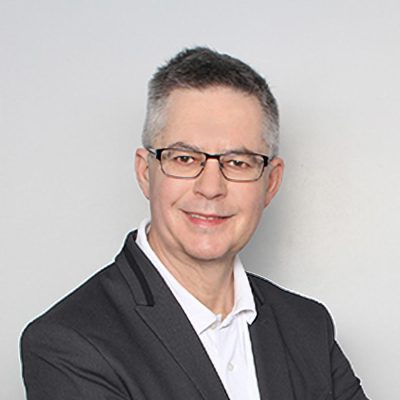

Yann Le Coz
